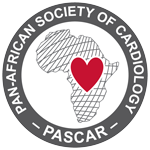Help the Stent - Save a Life! Safe Trip Advisor platform provide coronary patients the opportunity to continue traveling and discovering the world.
3 results found for: NSTEMI
Fulfilling its mission to extend its activities globally, Stent-Save a Life! increases its footprint in the Asia region with the recent membership of 3 candidate countries.
ST-segment elevation myocardial infarction (STEMI)
ST-Elevation Myocardial Infarction (STEMI) is a very serious type of heart attack during which one of the heart’s major arteries is blocked.
- Acute Myocardial Infarction in patients presenting with ST-segment elevation (Management of)
Ph. Gabriel Steg (Chairperson), Stefan K. James (Chairperson), Dan Atar, Luigi P. Badano, Carina Blomström Lundqvist, Michael A. Borger, Carlo Di Mario, Kenneth Dickstein, Gregory Ducrocq, Francisco Fernandez-Aviles, Anthony H. Gershlick, Pantaleo Giannuzzi, Sigrun Halvorsen, Kurt Huber, Peter Juni, Adnan Kastrati, Juhani Knuuti, Mattie J. Lenzen, Kenneth W. Mahaffey,Marco Valgimigli, Arnoud van’t Hof, Petr Widimsky, Doron Zahger.
European Heart Journal 2012;33:2569-2619 – doi:10.1093/eurheartj/ehs215.
Guidelines
NSTEMI (Non-ST-segment elevation myocardial infarction)
Non-ST Segment Elevation Myocardial Infarction (NSTEMI) is one of the three types of Acute Coronary Syndrome (ACS), and like all ACS, NSTEMI should be considered a medical emergency.
- Acute Coronary Syndromes (ACS) in patients presenting without persistent ST-segment elevation (Management of)
Christian W. Hamm (Chairperson) (Germany), Jean-Pierre Bassand (Co-Chairperson) (France), Stefan Agewall (Norway), Jeroen Bax (The Netherlands), Eric Boersma (The Netherlands), Hector Bueno (Spain), Pio Caso (Italy), Dariusz Dudek (Poland), Stephan Gielen (Germany), Kurt Huber (Austria), Magnus Ohman (USA), Mark C. Petrie (UK), Frank Sonntag (Germany), Miguel Sousa Uva (Portugal), Robert F. Storey (UK), William Wijns (Belgium), Doron Zahger (Israel).
European Heart Journal (2011)32, 2999–3054 – doi:10.1093/eurheartj/ehr236
Guidelines
Stents and scaffolds, PCI and Myocardial revascularization
Myocardial revascularization, or laser revascularization, is an alternative procedure for patients with ischemic heart disease who are unable to get percutaneous coronary intervention or coronary artery bypass graft procedures because of procedure failure, diffuse coronary artery disease, small coronary arteries, etc. This topic will present studies of coronary artery stent types including DES with bioresorbable vascular scaffolds and more.
- Myocardial Revascularisation (Guidelines for)
William Wijns FESC (Chairperson), Philippe Kolh FESC (Chairperson), Nicolas Danchin FESC, Carlo Di Mario FESC, Volkmar Falk, Thierry Folliguet, Scot Garg, Kurt Hubert, Stefan James FESC, Juhani Knuuti FESC, Jose Lopez-Sendon, Jean Marco FESC, Lorenzo Menicanti, Miodrag Ostojic FESC, Massimo F. Piepoli FESC, Charles Pirlet, Jose L. Pomar, Nicolaus Reifart FESC, Flavio L. Ribichini, Martin J. Schalij FESC, Paul Sergeant, Patrick W. Serruys FESC,Sigmund Silber FESC, Miguel Sousa Uva FESC, David Taggart .
European Heart Journal (31):2051-2555 – doi:10.1093/eurheartj/ehq277
Guidelines
Acute Myocardial Infarction (AMI)
Myocardial infarction (MI) or acute myocardial infarction (AMI), commonly known as a heart attack, occurs when blood flow stops to a part of the heart causing damage to the heart muscle. The most common symptom is chest pain or discomfort which may travel into the shoulder, arm, back, neck, or jaw.
- Universal definition of myocardial infarction.
Thygesen K, Alpert JS, White HD; Joint ESC/ACCF/AHA/WHF Task Force for the Redefinition of Myocardial Infarction.
Circulation. 2007 Nov 27;116(22):2634–53 – doi:10.1093/eurheartj/ehm355
Guidelines
- Third Universal Definition of Myocardial Infarction
Kristian Thygesen, Joseph S. Alpert, Allan S. Jaffe, Maarten L. Simoons,Bernard R. Chaitman and Harvey D. White; Joint ESC/ACCF/AHA/WHF Task Force for the Universal Definition of Myocardial Infarction.
European Heart Journal (2012) 33, 2551–2567 – doi:10.1093/eurheartj/ehs184
Guidelines






